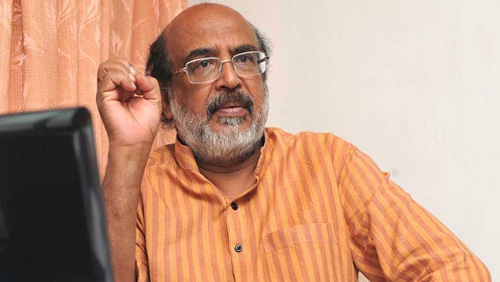The government of Kerala vows to come down heavily on the “unauthorized” move to sell the Mizoram lottery in the state.
On Friday, Kerala Finance Minister T.M. Thomas Isaac told reporters that “selling of lottery tickets of Mizoram in the state is illegal,” noting that Mizoram has yet to receive permission to do so.
 In fact, Isaac said the Kerala government only learned about the move to promote the Mizoram lottery “through a newspaper advertisement.”
In fact, Isaac said the Kerala government only learned about the move to promote the Mizoram lottery “through a newspaper advertisement.”
“There has been no intimation from the Mizoram government as mandated by the Central law. The police will be asked to investigate and identify the elements behind the operation. Criminal procedures will be initiated against the perpetrators and tickets of unauthorized lotteries will be confiscated,” Isaac said, according to The Hindu.
The finance minister confirmed that they received an official letter from the Mizoram government the day after the advertisements for the lottery appeared in some newspapers. However, the letter only talked about distribution arrangements and didn’t detail other aspects of the business, including sales and printing, he said.
Isaac said different states started their efforts to sell lottery tickets in Kerala after the dual tax rate for lottery took effect.
If you recall, the Goods and Services Tax (GST) Council ordered in June a dual tax rate for lottery tickets in the country. Under the dual tax rate, state-run lotteries, which do not have private distributors or marketing agents, will be charged a 12 percent GST rate, while lotteries operated by private distributors will fall under the highest tax slab of 28 percent. Mizoram is among the states that have allowed private distributors to sell and market their lottery schemes, along with Maharashtra, Goa, Sikkim, Nagaland, Punjab and West Bengal.
Government officials in the state of Mizoram were under fire recently for allegedly losing about INR11,808.77 crore (US$1.83 billion)—more than the state’s budget—in a so-called lottery scam. The Comptroller and Auditor General of India (CAG) report revealed that the state government never collected the sales proceeds, and that the distributors deposited a “minimum guaranteed revenue” to the state and kept the money, which eventually resulted in the state losing close to $2 billion in revenue.